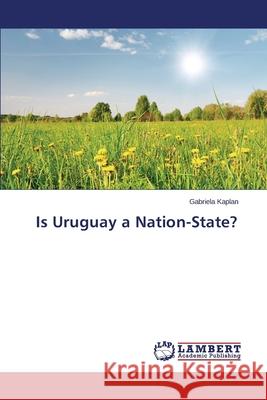Is Uruguay a Nation-State? » książka
Is Uruguay a Nation-State?
ISBN-13: 9783659692321 / Angielski / Miękka / 2015 / 108 str.
The aftermath of the French Revolution brought, among other political consequences, the cultural setting for the formation of nation-states. The period between the years 1780-1848 saw thousands of soldiers fighting for what they believed was their natural right to become national states. Nevertheless, the inhabitants of what was called Oriental Band, Oriental Province, La Cisplatina, Oriental State, and eventually in 1918 Oriental Republic of Uruguay, found themselves in the opposite predicament as they were compelled to forge nationhood out of an artificially created state. The Republica Oriental del Uruguay was the consequence of the Preliminary Peace Convention signed in Rio de Janeiro in 1828 between the Empire of Brazil and the Provincias Unidas under the auspices of Great Britain, and therefore its study offers an interesting case in the genesis of nationhood from statehood. The purpose of this study is to analyze how Uruguayan historiography has tried to conceal the artificiality of state creation, and to evaluate the struggle and degree of success of such a demanding cultural purpose."
The aftermath of the French Revolution brought, among other political consequences, the cultural setting for the formation of nation-states. The period between the years 1780-1848 saw thousands of soldiers fighting for what they believed was their natural right to become national states. Nevertheless, the inhabitants of what was called Oriental Band, Oriental Province, La Cisplatina, Oriental State, and eventually in 1918 Oriental Republic of Uruguay, found themselves in the opposite predicament as they were compelled to forge nationhood out of an artificially created state. The República Oriental del Uruguay was the consequence of the Preliminary Peace Convention signed in Rio de Janeiro in 1828 between the Empire of Brazil and the Provincias Unidas under the auspices of Great Britain, and therefore its study offers an interesting case in the genesis of nationhood from statehood. The purpose of this study is to analyze how Uruguayan historiography has tried to conceal the artificiality of state creation, and to evaluate the struggle and degree of success of such a demanding cultural purpose.











